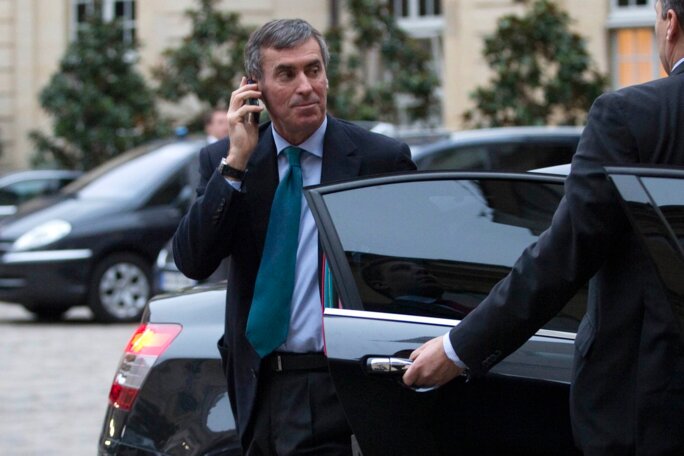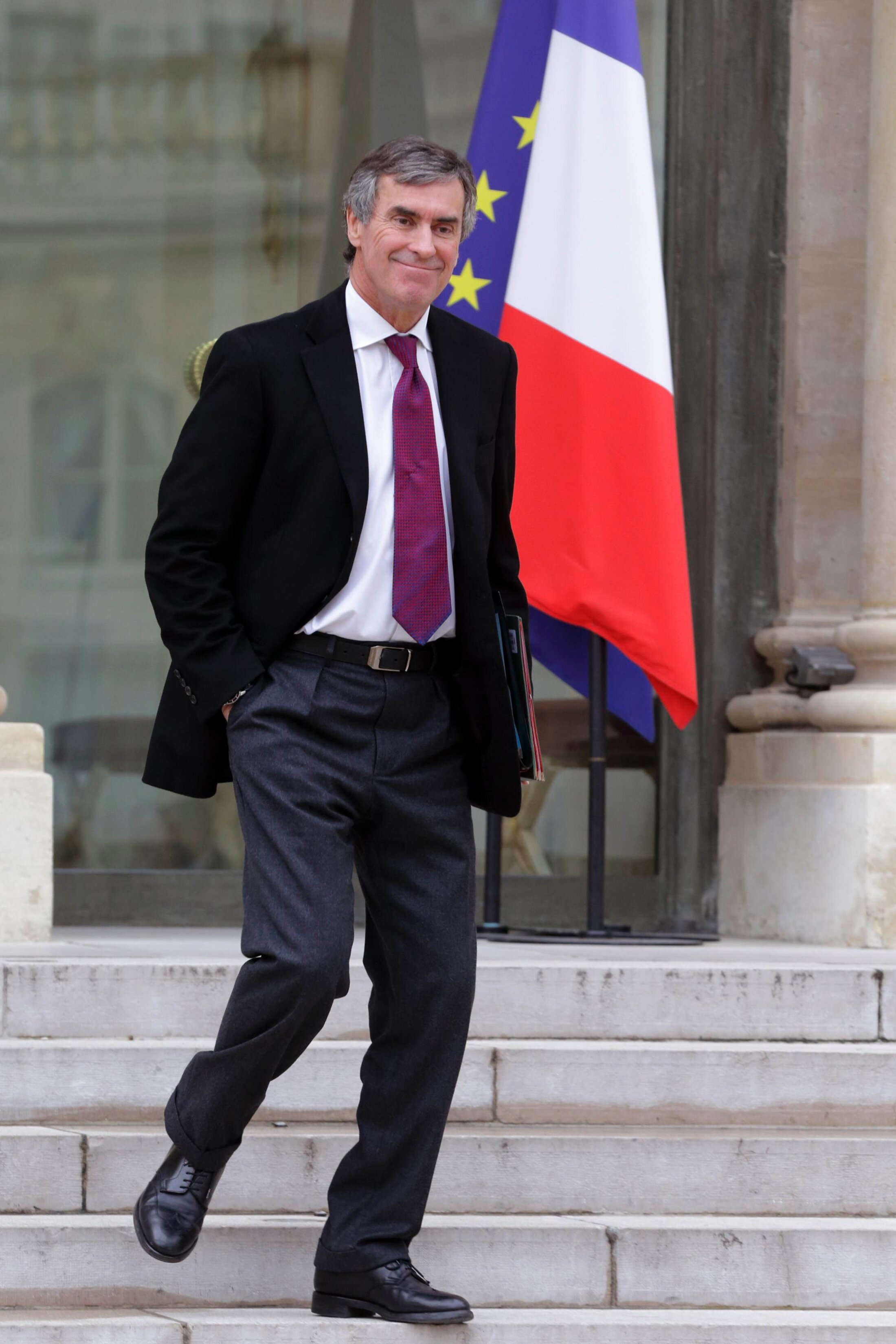The French budget minister Jérôme Cahuzac does not appear to like doing things the easy way. The minister, under fire for the Mediapart revelation that he held an undisclosed account at Swiss bank UBS until February 2010, is now preparing what seems to be a complex defence manoeuvre. On his own blog the minister, who continues to deny having had a Swiss back account, has explained that he has asked his lawyer to get from UBS “negative confirmation” about the account. In other words, a statement from the bank that he has never held an account at that establishment.
By doing this the minister who, aided by the spin doctor Stéphane Fouks and public relations agency Havas Worlwide/EuroRSCG has for the past two weeks conducted a concerted PR defence, is hoping to reduce some of the growing pressure on him. Several media outlets have recently pointed out that all the minister needs to do is release UBS from its banking confidentiality obligations in relation to him to put an end to what Cahuzac has termed “outrageous accusations from Mediapart”. The website Rue89 suggested on December 6th that the minister could “demolish the suspicions” and “release UBS from banking secrecy” obligations. The Swiss daily newspaper Le Temps took an identical line.
And last week the satirical weekly magazine Le Canard enchaîné also suggested the same approach. A number of banking and legal experts have also been questioned on the detail of how to go about such a procedure, thus increasing the pressure on the minister.
So it was in response to them – the media outlets – that Jérôme Cahuzac explained yesterday, Wednesday December 19th, that his lawyer had undertaken the first step on Monday December 11th. This involved asking UBS, though curiously it was done in an “anonymous manner”, under what circumstances their banking secrecy obligation could be lifted in relation to an individual. The unsurprising response came from the bank on December 13th: “On principle we do not agree to this type of request and do not provide negative confirmations.”
The minister can therefore use this as part of his PR narrative: having been “subject to calumnies” by Mediapart, now here he is being forced to do battle with UBS to prove his innocence. Another interpretation could be drawn from it, as indicated here in this Tweet from La Parisienne Libérée an alternative singer who is a regular contributor to Mediapart.

She says simply: “Cahuzac makes sure from UBS that no confirmation is possible, then announces that he is going to ask for it!”
Why wait six days before publishing this response from UBS? It is doubtless a consequence of the publication a few hours earlier, by Le Canard enchaîné, of a story stating that last week the minister promised President François Hollande that he would write to UBS. Now we know what in fact happened. A banal question in principle was put to the bank anonymously, a request scarcely different, incidentally, from that which Mediapart had itself addressed to the UBS press office (who have not yet responded).
This part of the story is set to continue as the legal and technical debate around UBS's position on disclosure is far from over. The news magazine L'Express 's website questioned “the Swiss lawyer of a large bank” some days ago. He asserted that Swiss bankers refuse “to deliver a certificate which shows you are not a client of theirs”. But on Wednesday of this week Le Canard enchaîné stated that “the procedure [of a bank relaxing its secrecy rules at the request of an individual] is absolutely legal”. According to the Swiss Bankers Association whom they spoke to “the law allows that an individual can authorise an establishment to raise bank secrecy concerning them”.
Mediapart has also asked the Swiss Bankers Association, and on this occasion they were less categoric. “These 'negative confirmations' stating that a person is not a client of a specific bank are possible, but it's a matter to be discussed between the bank and the person concerned,” they said. All of which does not really advance matters, except to indicate that in the absence of clear and categoric rules there needs to be a negotiation between the bank and the individual. The parameters of these negotiations seem to depend on the occasion, the timing and the nature of the protagonists.
A clear conflict of interest
It is by this confusing strategy that budget minister Jérôme Cahuzac is trying to regain the initiative or, alternatively, buy himself time. There is, however, a simpler way for the matter to be resolved. It could be referred to an independent investigating magistrate who could, within the framework of a judicial investigation, follow the necessary procedures with the Swiss authorities and obtain this information. In view of the seriousness of the alleged crime – tax fraud – only an independent judicial investigation would be able to shed light on an affair that no longer embarrasses just the Finance Ministry where Cahuzac is a minister but the entire government and ruling party, the Socialist Party.

Enlargement : Illustration 2

For, given his current functions as budget minster, any direct request from Jérôme Cahuzac to UBS is immediately tainted with suspicion. The bank is in fact in the spotlight of the tax authorities and the judicial system, and not only in France. Just this week UBS accepted a fine of 1.4 billion Swiss francs (about 1.1 billion euros ) in the unfolding scandal of the rigging of the Libor rate - global benchmark interest rates – after a deal with the American British and Swiss authorities.
That the French budget minister might potentially today be at the mercy of a statement by a foreign bank renders his situation untenable. The conflict of interest is evident for Jérôme Cahuzac who is at the same time a minister and thus official supervisor of the tax system, and an individual client. What makes his position even more difficult is the fact that it is not just his personal request to UBS that is discredited. For the minister also finds himself as party to the French legal process that is today targeting UBS.
Since April an investigating magistrate Guillaume Daïeff has been detailed to investigate the alleged tax evasion practices of the bank in France. The then budget minister François Baroin had referred the matter to the prosecution authorities who, after waiting several months, decided to hand over the case to an investigating magistrate. Indeed, the budget minister – who is today Jérôme Cahuzac – formally has the status of 'partie civile' in the case. This is the French procedure in which a victim of an alleged crime can attach their civil claim to an existing criminal trial or investigation.
It would be logical for the prosecution authorities now to ask the investigating judge to take account of the information published by Mediapart. For the investigation targeting UBS directly concerns the methods of cold-call selling and tax evasion being carried out on a grand scale by the bank in France for years. In the absence of such an initiative by the prosecution authorities – which is unlikely given that they are under the authority of the executive – the judge could himself examine this information by requesting authorisation to include Jérôme Cahuzac's situation within the scope of his investigation.
That is, today, the only guarantee of an independent and impartial investigation.
For its part Mediapart is willing to make available to the judicial authorities all documents, statements and pieces of information that have led it to reveal the existence of Jérome Cahuzac's undeclared Swiss bank account. It is worth recalling that to this day the minister has not denied the authenticity and the content of the recording that Mediapart has put online. Nor is he any longer denying making a visit to Geneva at the start of 2010 to effectuate, according to Mediapart's investigation, the closure of the account.
An incoherent complaint by Cahuzac against Mediapart
To this day the only legal process that has begun in this affair is one against Mediapart. In his capacity as head of Mediapart Editor-in-Chief Edwy Plenel was interviewed by detectives on Monday December 17th in the context of the defamation lawsuit lodged by Jérôme Cahuzac. Mediapart reporter Fabrice Arfi will be interviewed at the start of January. This is simply standard procedure for the preliminary investigation carried out by the Paris prosecution authorities at the request of the Ministry of Justice. This investigation will not look at any of the substantive elements of the affair but simply addresses standard formulaic questions - checking that the article was indeed published online by Mediapart, that Fabrice Arfi was the author and that Edwy Plenel is indeed the Editor-in-Chief.

Enlargement : Illustration 3

During the Editor-in-Chief's brief interview, Mediapart learnt more about Cahuzac's complaint. It was no great surprise to discover that its was procedurally incoherent, something that Medipart pointed out in the interview. In fact the complaint is in the form of a referral by the budget minister to the justice minister under Article 48 1°bis of the 1881 press law. This article deals with “cases of injury and defamation towards a member of the government”. Such cases are dealt with under common law and “the proceedings will take place at the request of [the member of the government] addressed to the minister of justice”.
Yet the way that Jérôme Cahuzac's lawyers have drawn up their complaint it is explicitly stated that the defamation does not involve him as a member of the government but as a private individual. The bank account at UBS was obviously not held by Cahuzac when he was a minister – he did not become a minister until the spring of 2012 – but by Cahuzac the private individual. As a result the complaint lodged against Mediapart is an abuse of process.
In addition the formal complaint, dated Thursday December 6th, only targets the first article published by Mediapart (in French) on Tuesday December 4th (see English version here). It does not concern the second article (see here in French and here in English), even though it was published on Wednesday December 5th just before the complaint was made. That revealed the existence of a recording of a conversation in 2000 in which Jérôme Cahuzac confides his embarrassment at the account held at UBS to his wealth manager Hervé Dreyfus. Up until now this recording and our details on its date and who took part have been the object of no complaint for falsehood, and no formal challenge.
----------------------------
English version by Michael Streeter


